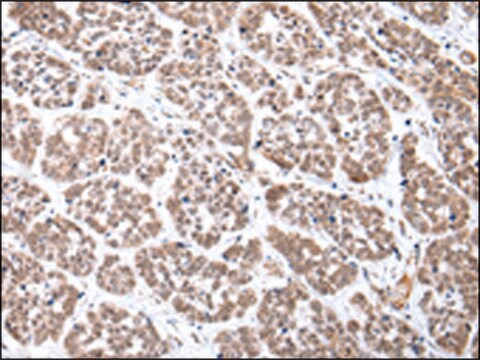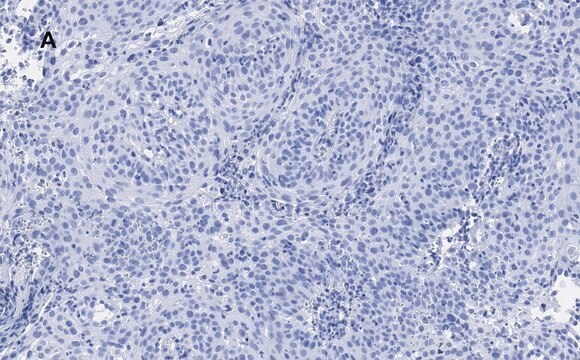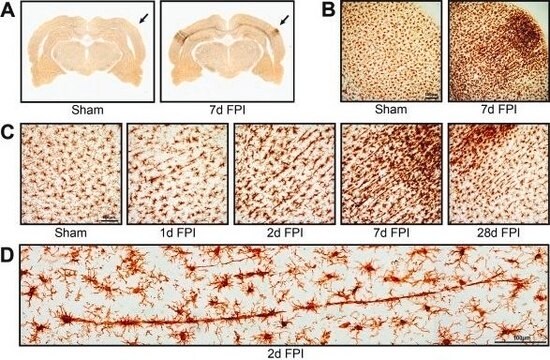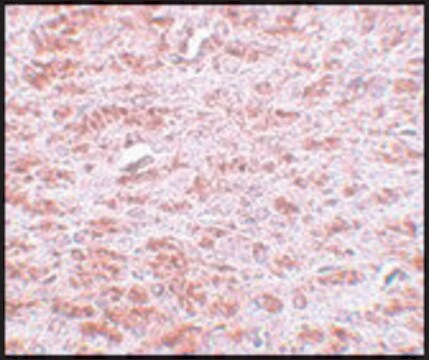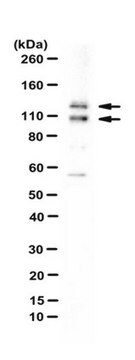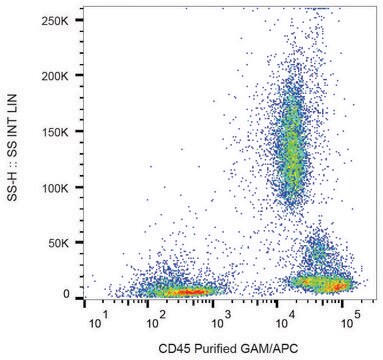SAB5300425
Monoclonal Anti-MKI67 antibody produced in mouse
clone 8D5, ascites fluid
Synonym(s):
KIA, Ki-67, MKI67
About This Item
Recommended Products
biological source
mouse
Quality Level
conjugate
unconjugated
antibody form
ascites fluid
antibody product type
primary antibodies
clone
8D5, monoclonal
mol wt
358 kDa
species reactivity
human
technique(s)
direct ELISA: 1:10,000
immunohistochemistry: 1:200-1:1,000
western blot: 1:500-1:2,000
isotype
IgG1
shipped in
wet ice
storage temp.
−20°C
target post-translational modification
unmodified
Gene Information
human ... MKI67(4288)
Immunogen
Mouse monoclonal antibody raised against KI67
Physical form
Disclaimer
Not finding the right product?
Try our Product Selector Tool.
Storage Class Code
10 - Combustible liquids
WGK
WGK 3
Flash Point(F)
Not applicable
Flash Point(C)
Not applicable
Choose from one of the most recent versions:
Certificates of Analysis (COA)
Don't see the Right Version?
If you require a particular version, you can look up a specific certificate by the Lot or Batch number.
Already Own This Product?
Find documentation for the products that you have recently purchased in the Document Library.
Our team of scientists has experience in all areas of research including Life Science, Material Science, Chemical Synthesis, Chromatography, Analytical and many others.
Contact Technical Service